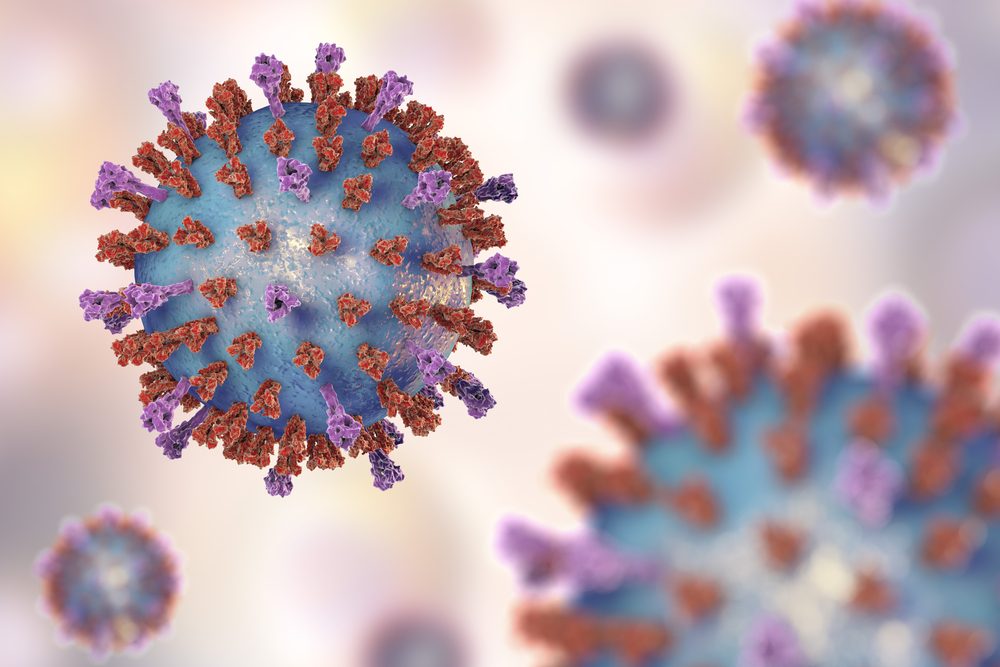aHUS Relapse Triggered by COVID-19, Case Report Finds

The first reported instance of a COVID-19 infection triggering an atypical hemolytic uremic syndrome (aHUS) relapse has been described in a recent case study.
The case highlights the need to monitor aHUS patients, and to continue their standard treatments, during COVID-19 and other infections, the researchers said.
Titled “Atypical HUS relapse triggered by Covid-19,” the report was published in the journal Kidney International.
aHUS is a genetic disease resulting in abnormal blood clots in the small blood vessels of the kidney. This, in turn, leads to hemolytic anemia — anemia due to the destruction of red blood cells — thrombocytopenia, or low platelet count, and kidney failure.
The blood clots result from mutations in genes regulating the complement system, a portion of the immune system that fights foreign invaders and protects healthy cells. When unregulated, the complement pathway becomes overactive, attacking blood vessels and inducing inflammation and blood clot formation.
The rare disorder is commonly treated with Soliris (eculizumab), a therapy that targets the complement pathway. But aHUS relapse is common and may be triggered by viral infections like influenza.
Blood vessel injury and the formation of abnormal blood clots in small blood vessels, also called thrombotic microangiopathy, have previously been reported in COVID-19 patients. Moreover, COVID-19 progression may involve activation of the complement pathway. Notably, the patient described in the study — a 28-year-old white female, initially diagnosed at age 3 — is the first reported person with aHUS to have a relapse triggered by COVID-19.
The woman had experienced three prior relapses. After the second relapse at age 20, she was treated with dialysis and reached remission after four plasma exchanges — a treatment that replaces the liquid portion of blood — and a 12-month treatment with Soliris.
An ectopic pregnancy triggered a third relapse at age 27, and the woman was subsequently treated with three months of Soliris. A biopsy revealed chronic kidney disease and high blood pressure, which both required treatment.
In September 2020, the patient experienced symptoms associated with COVID-19, including fever, difficulty swallowing, and a headache, along with a red inflamed throat, swollen lymph nodes, and high blood pressure. Further tests showed hemolytic anemia, mild thrombocytopenia, acute kidney injury, and high levels of protein in the urine, confirming an aHUS relapse.
COVID-19 was subsequently diagnosed by a positive nasopharyngeal swab test. Additional tests revealed abnormal levels of immune complement system components in the blood, prompting an immediate restart of Soliris treatment. The patient also was treated with a combination of preventative penicillin and anti-blood clotting medication to reduce the greater risk of blood clotting associated with COVID-19.
After seven days of Soliris treatment, the patient had improved enough to be discharged from the hospital. One month after the relapse diagnosis, kidney function had improved, though it had not returned to normal levels. Similarly, blood clotting appeared normal, but signs of anemia and mild complement pathway overactivation persisted.
SARS-CoV-2, the virus that causes COVID-19, is known to activate the complement pathway in cultured cells and animal models. This case study demonstrates that COVID-19, like other viral infections, can trigger an aHUS relapse, potentially by similarly activating the complement pathway in humans.
The investigators emphasize that aHUS patients who are not currently in treatment may be at increased risk for relapse in light of the COVID-19 pandemic.
“Our observation underlines the need for a close monitoring of aHUS patients who discontinued eculizumab in the setting of COVID-19. It also a further indication that complement blockade should not be discontinued in aHUS during infectious episodes, COVID-19 not being an exception,” they wrote.






